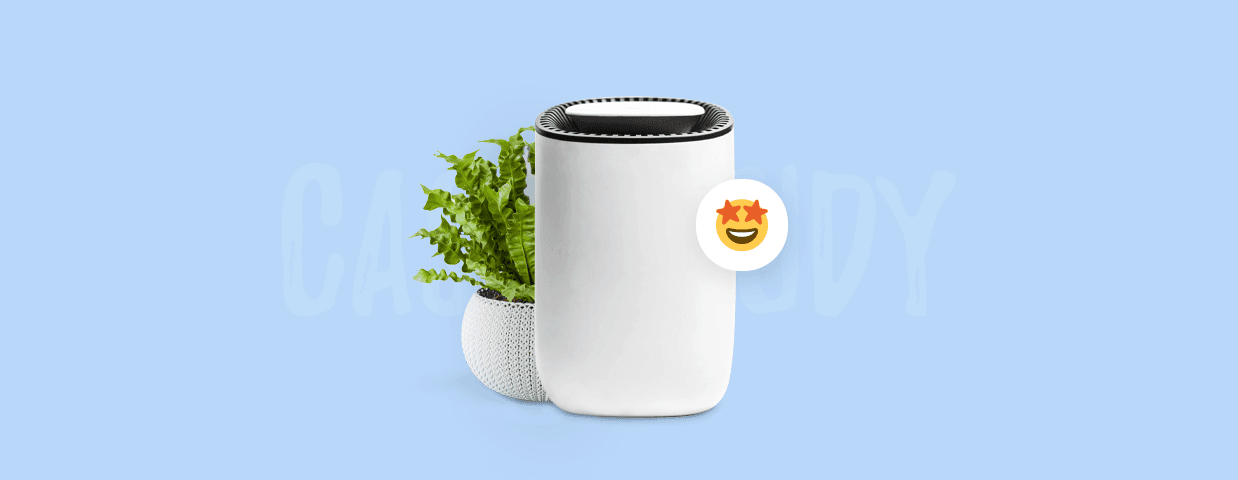How has COVID-19 pandemic impacted your business?
Are you curious to learn this seemingly difficult situation could be turned into a money-making opportunity… from anywhere in the world?
Read on.
In today’s case study you will learn how to run a really successful high ticket dropshipping business (even in the times of a global pandemic!) from first-hand experience of a brilliant entrepreneur.
What we’ll cover:
- Why I’ve decided to sell high ticket products
- My challenges in closing high ticket sales
- How I used chatbots to build trust and automate sales
- My results as a high ticket closer – $23.000 in sales
- Key takeaway – tips to run a successful high end products business
- Bonus: Chatbot tutorial (triggers explained)
Scale your support capacity with conversational AI
Ready? Let’s get started by taking a look at the timeline of the story.
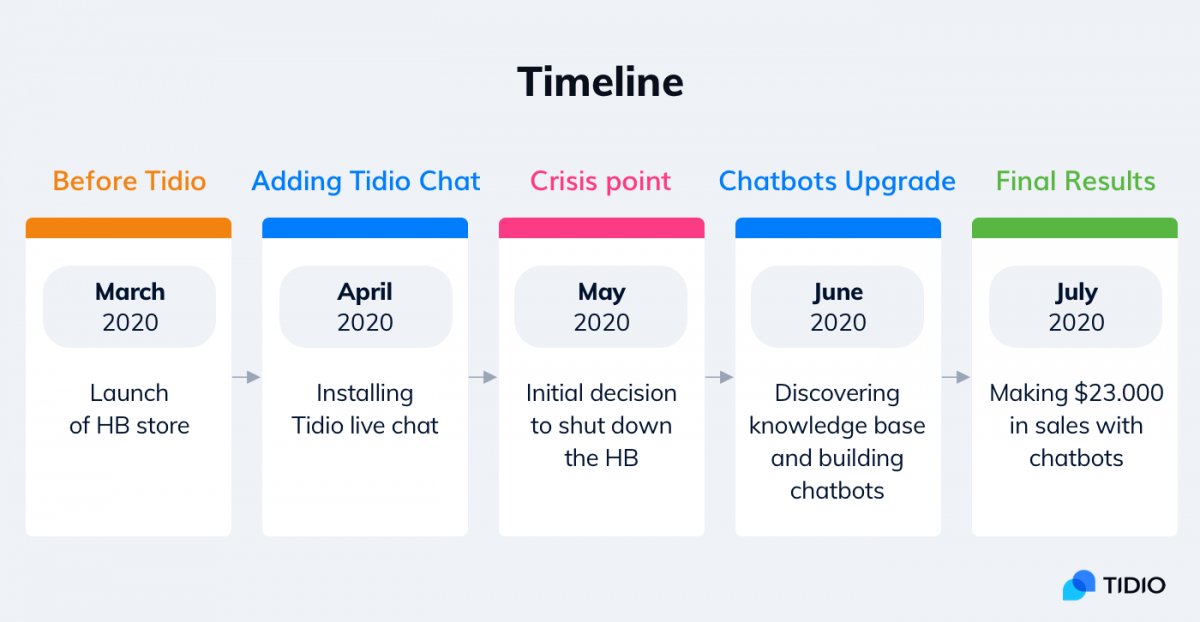
Why I’ve decided to sell high ticket items
Now, without further ado, let me introduce you to Alexis Varsat, the owner of HB*—a thriving eCommerce business from the U.S. HB offers premium quality air purifiers.
Say hi to Alex!
(*Alex asked us to not reveal the full name of his company)
Wondering why Alex chose this particular niche of high end products?
It’s simple—popularizing air purifiers closely aligned with his own values – caring for clean and healthy environment for both himself and his loved ones.
He added:
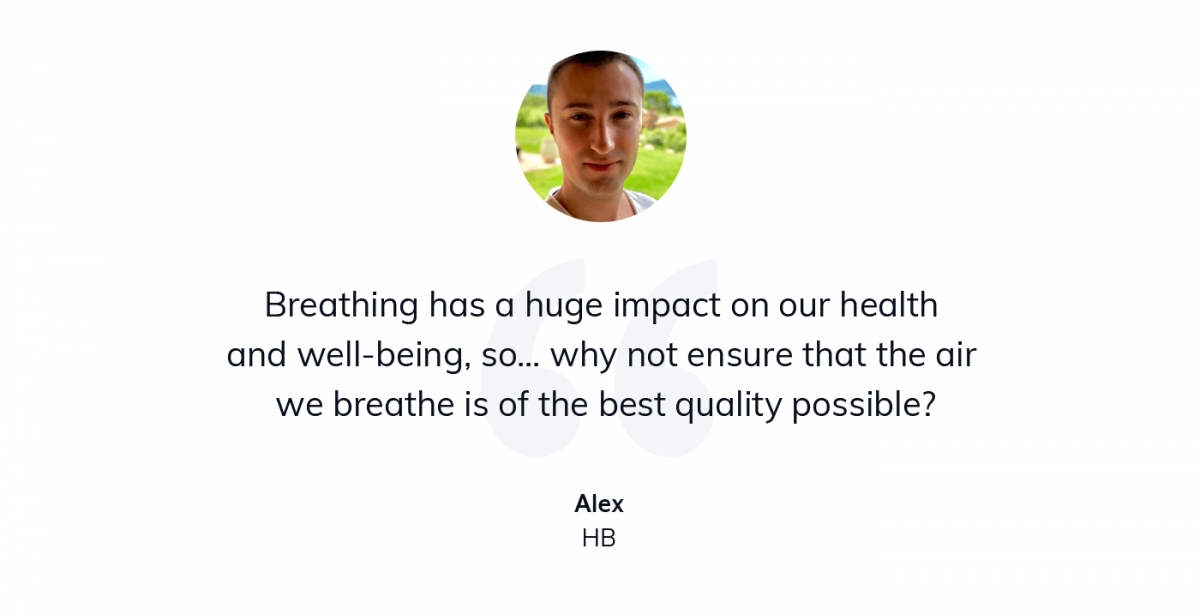
It was having this thought in mind, that made Alex took a plunge and start his own high ticket dropshipping business selling air purifiers—HB.
You can check it out below (and get in touch with him via Tidio live chat in the down right corner 😉).
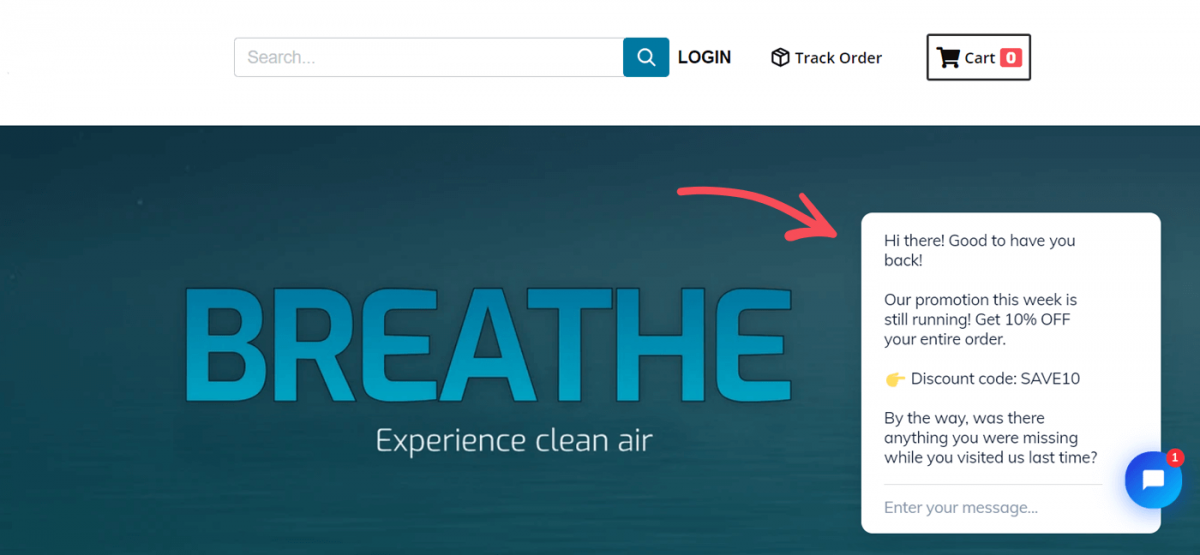
The shop opened in March 2020—right in the middle of the global COVID-19 pandemic.
However, Alex’s entrepreneurial adventure begins much earlier.
In fact, it dates back to 2016 when he started his first low-ticket dropshipping business and here’s how it continued:
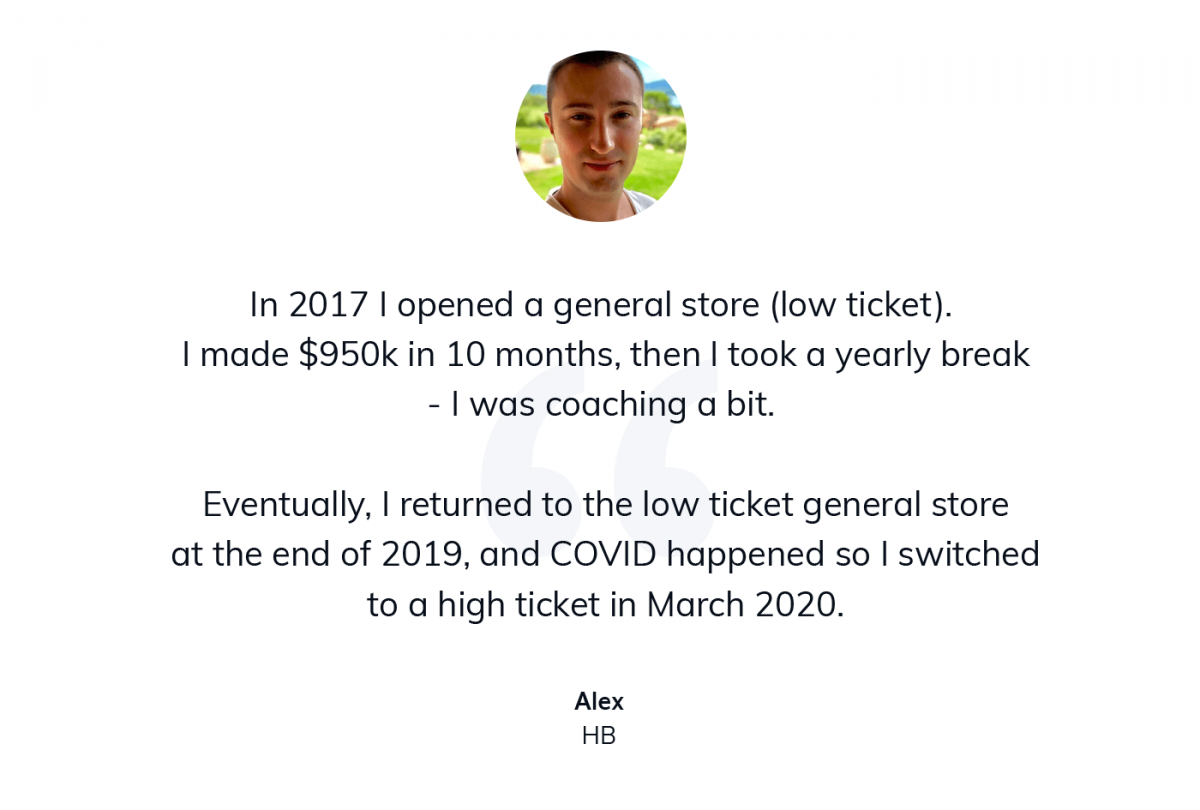
A journey was full of unexpected turns. It finally resulted in pushing Alex to make a decision and switch from low-ticket to high-ticket sales.
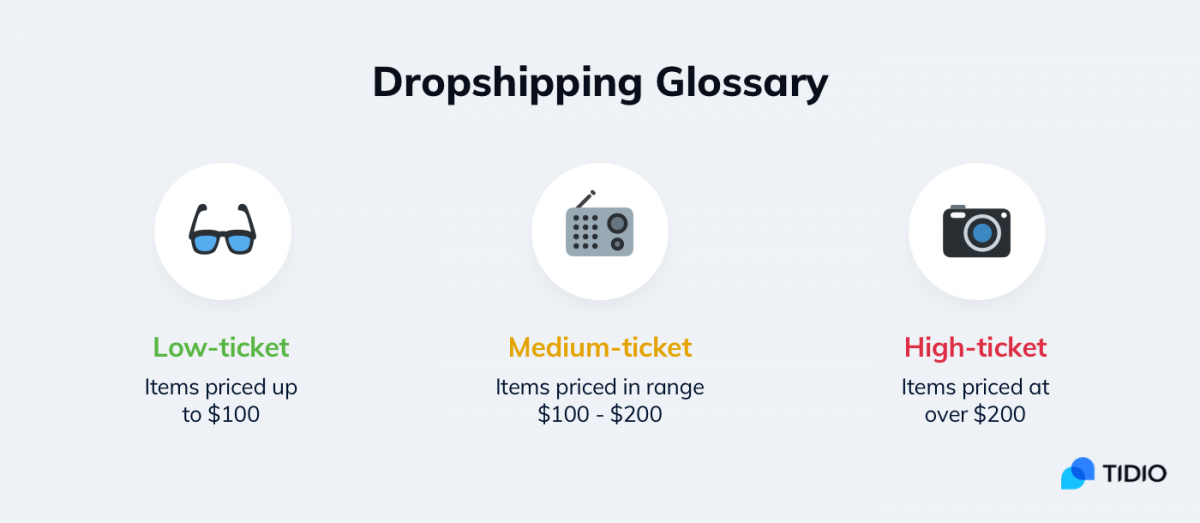
As you can imagine, the idea of selling fewer items for a higher price margin seemed simple only on the paper.
Becoming a successful high ticket closer meant becoming a great salesman in the first place.
Did Alex succeed at that? You bet he did!
Read on to learn how he managed to overcome challenges and outsmart his competition. But first, let’s go back in time a little…
My challenges in closing high-ticket sales during COVID-19
“It’s a good opportunity” thought Alex when switching to high ticket dropshipping in March 2019.
The problem?
Thousands of other high ticket closers thought exactly the same thing.
They all came across similar issues:
- Highly saturated and competitive market ❌
- Global crisis approaching ❌
- Decreasing demand for premium products ❌
- Possible import restrictions ❌
Throw in switching the suppliers from China to the U.S and the risk of running a dropshipping business goes up exponentially.
Nevertheless, Alex took a chance.
Are you considering starting an online store? If so, here is a helpful resource to help you choose the right platform and get started easily: 🚀 WordPress vs Shopify and BigCommerce [Guide + Tips]
Fast forward 3 months to June 2020, and he was very close to shutting his store down. HB simply didn’t make enough money.
The problem?
People did not want to buy from a newly established company. They had no trust and were hesitant to spend hundreds of dollars on products from a company with limited track of records.
No trust = no sales.
This situation left Alex stressed out and forced to find an answer to the following question.
Challenge: How to build trust and close high-ticket items sales running a dropshipping business during COVID-19?
HB team understood that they needed to get closer to their audience in order to build trust, understand their needs, and address them in a personalized way.
Hence, here’s the goal that Alex set out for HB:
Goal: Build trust and close relationships with potential customers to close more 1:1 sales via live chat and phone.
In the Process section below, we’ve outlined the exact steps that Alex took to find the right solutions and eventually succeed.
To give you a little taste of how this turned out, his sales (made solely with Tidio) amounted to $29k in July 2020.

How I used chatbots to build customer loyalty and automate sales
Now, let me guide you through Alex and his team’s journey since adding Tidio live chat to his website.
Step 1: Installing Tidio live chat
Having experience with live chats in the past, HB team decided to give Tidio chat a chance in April 2020.
They installed a chat plugin and started communicating with their website’s visitors in real-time. A live chat widget has also made the website more credible, hence trustworthy.
Alex said:
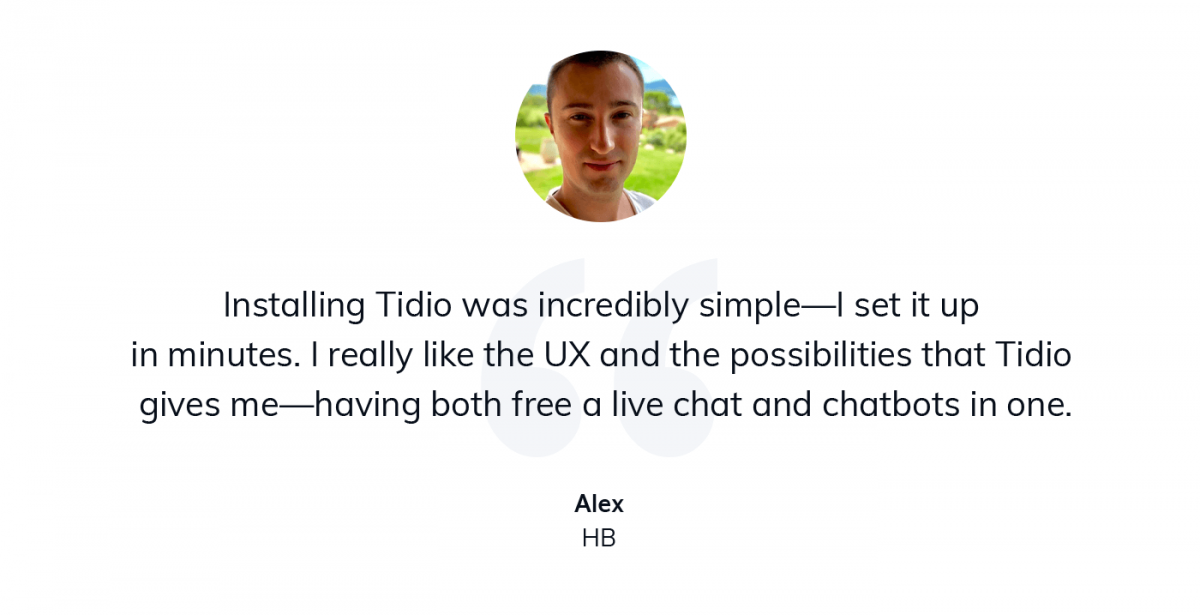
🚀 Read more: What Is Live Chat? How Your Business Can Benefit From Live Chats With Customers.
Step 2: Covid-19 crisis and (almost) closing the store in June
However, with sales oscillating between $2,000 and $3,000 per month (only 2-4 sales), HB simply wasn’t profitable. Potential customers did not have a reason to buy their air purifier specifically from HB.
Here’s the breakdown of their stats from June 2020:
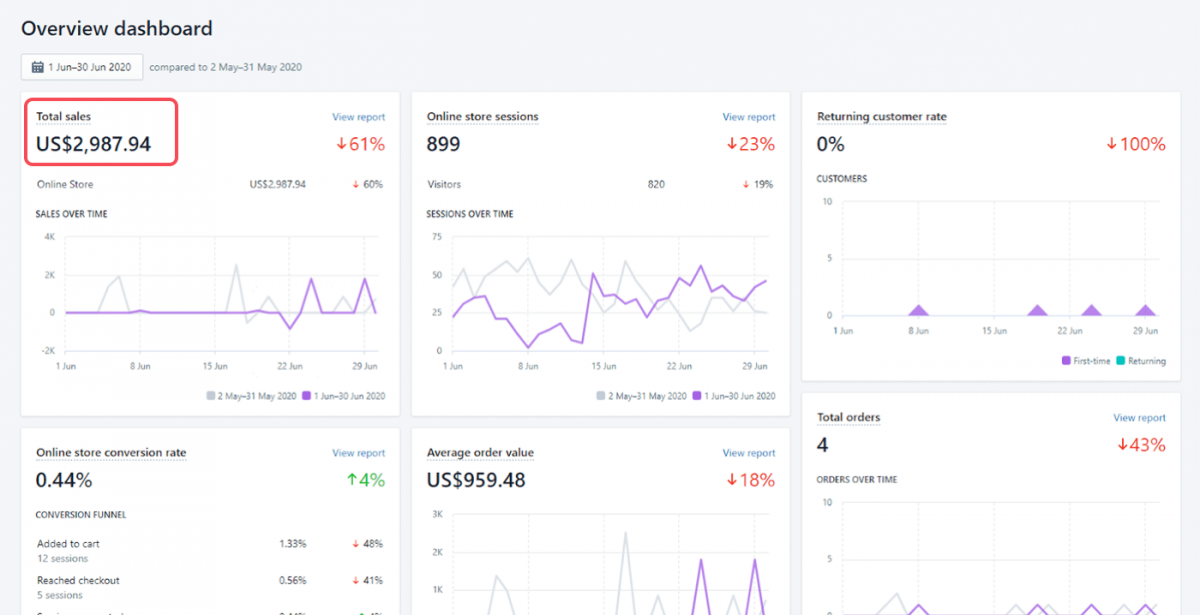
With relatively high-cost items, the purchase decision had to be made more carefully.
Alex knew that people needed to trust his business in order to buy. They also needed to have all their questions addressed immediately and their needs taken care of to a T.
The problem? It’s easier said than done.
HB was on the brink of being shut down but Alex stumbled upon Tidio’s knowledge base, learned about chatbots, and his situation turned 180 degrees.
🚀 Read more: What is a Chatbot and How Chatbots Are Changing Everything?
Step 3: Discovering Tidio’s knowledge base
In June 2020 Alex discovered chatbot automation. He started by reading Tidio’s knowledge base where he found simple chatbot tutorials.
You can access it here: https://www.tidio.com/knowledge/
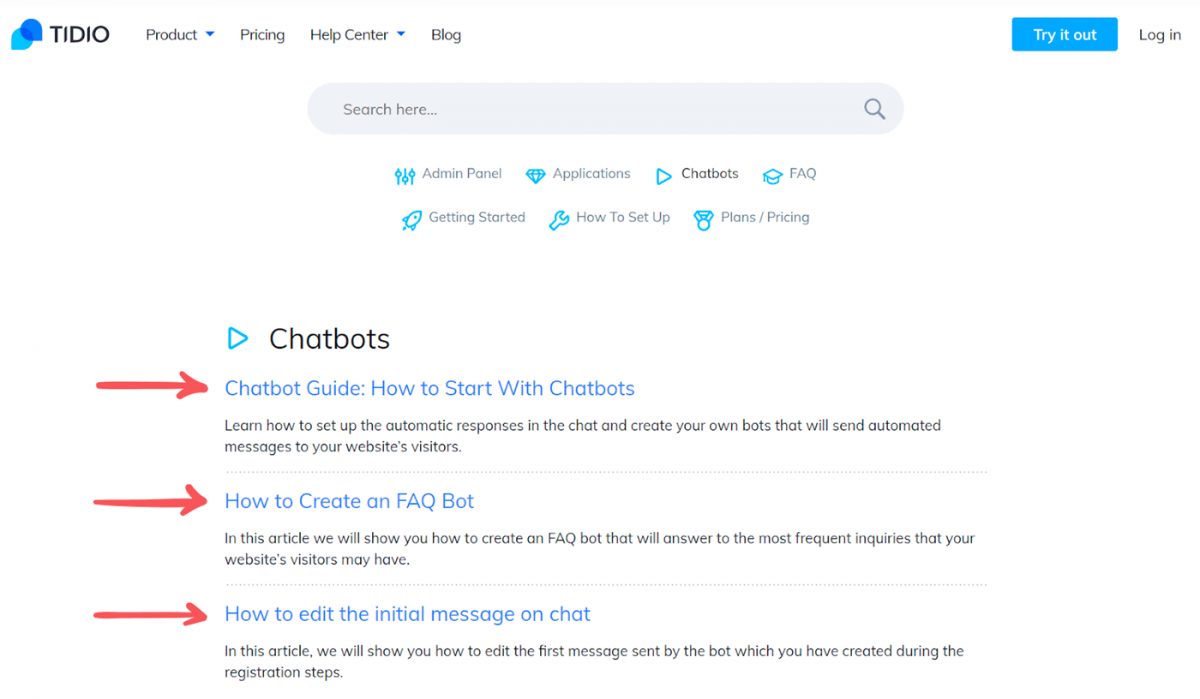
From a FAQ to the Cart Abandonment chatbot, Alex has decided to experiment with bots and engage his website visitors the moment they enter his store’s page.
🚀 Read more: How to Make a Chatbot Without Coding in Less Than 15 Minutes (Free)
Step 4: Experimenting with a chatbot and closing first high ticket sales
Tidio offers 20+ free chatbot templates.
Using pre-made templates, Alex could add a bot to his store in less than 5 minutes. He experimented with FAQ bot first, but then realized that people prefer to get answers from a real person.
So he used a welcome message chatbot that encourages visitors to get in touch with Alex or his team and clarify any concerns related to air purifiers.
It was an instant hit that helped him reach more potential customers and, in consequence, sell more.
He told us:
“Promote your knowledge base more! It’s really useful. Tidio helped me 10x my sales after I set up the app in the right way. I cannot wait to promote it to my clients, too”
Explore Chatbots🚀 Read more: Chatbot Flowchart and Decision Tree Examples
Step 5: Launching 4 custom chatbots on different pages
Finally, Alex has decided to use 4 chatbots that engage website visitors on different pages depending on their buyer’s journey stage.
Here’s how they look in practice:
- Homepage “welcome bot” to engage visitors and connect them to Alex or his team.
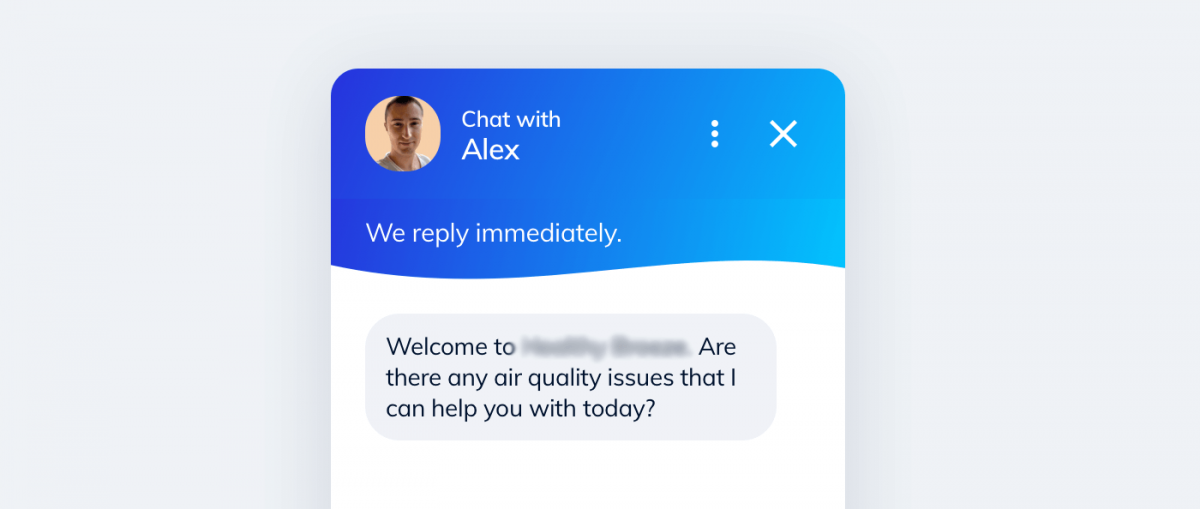
- Product page chatbot*—it fires after 10 seconds offering a free consultation. The bot asks for a phone number and Alex is able to call the potential customer back within seconds.
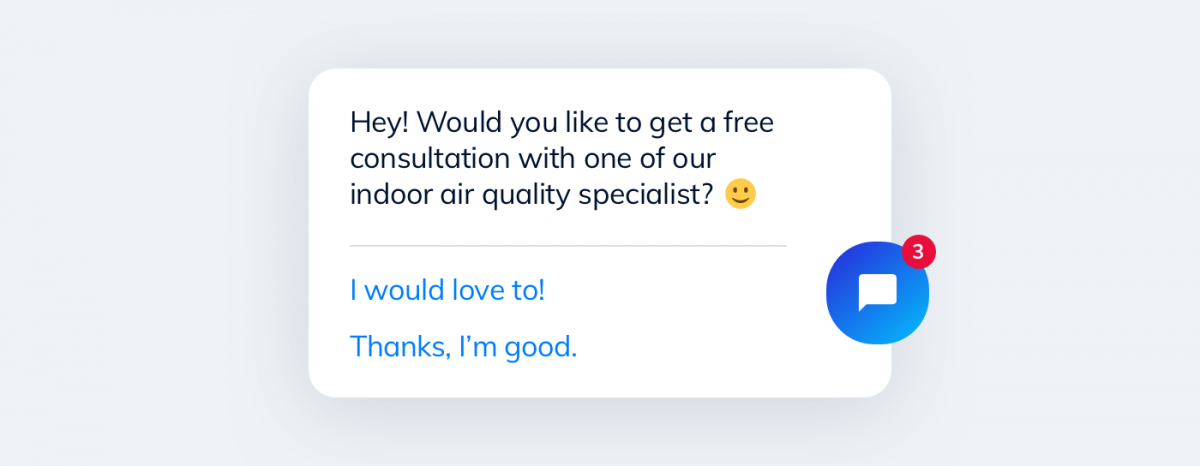
- Contact page chatbot—”I see you try to contact us, would you like to get in touch with us?”
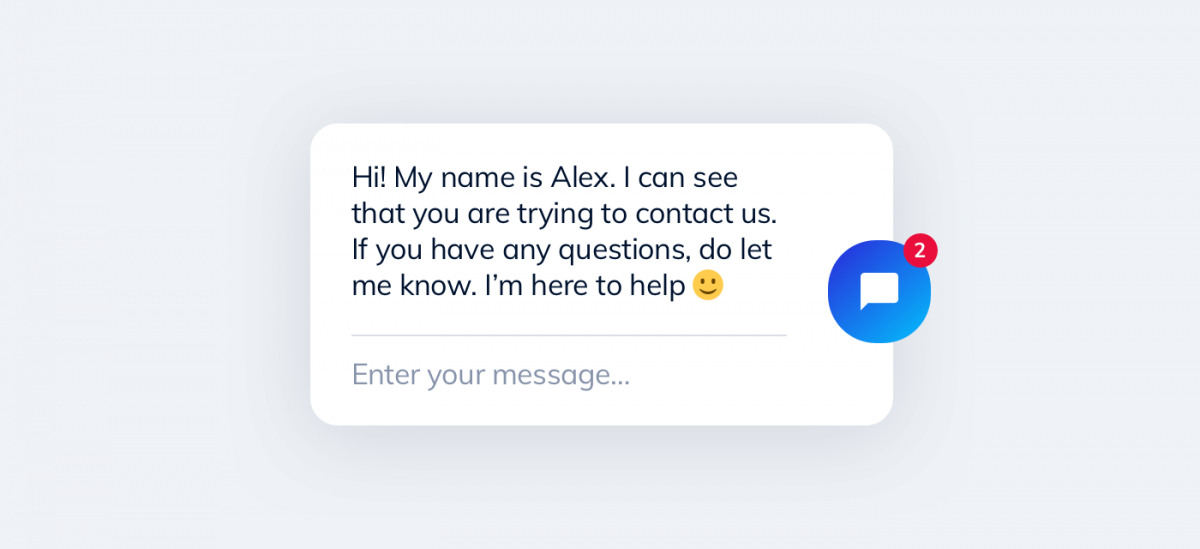
- Chatbot for returning visitors—it automatically offers a 10% discount for visitors who come back to the HB website.
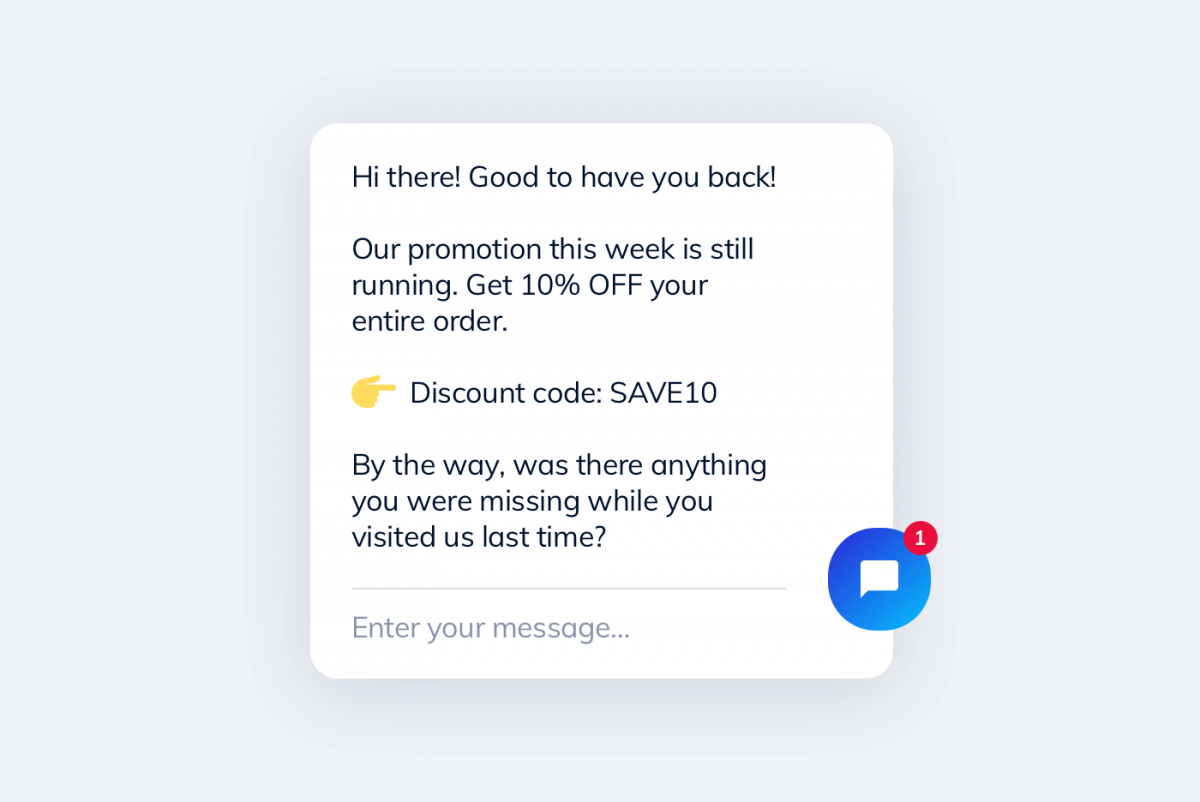
To get started with free chatbots and have access to ready-to-use chatbot templates for every industry, check out our chatbot library (click).
My results as a high ticket closer – $23.000 in sales using chatbots
Finally, here are the results HB achieved right after adding Tidio’s chatbots on the 12th of July 2020.
The sales went from less than $3,000 in June to more than $23,000 in July.
Alex started receiving more requests via both chatbots and live chat. He hired an employee in the Philippines to be available 24/7 for his website’s visitors.
July 2020
The sales dashboard:
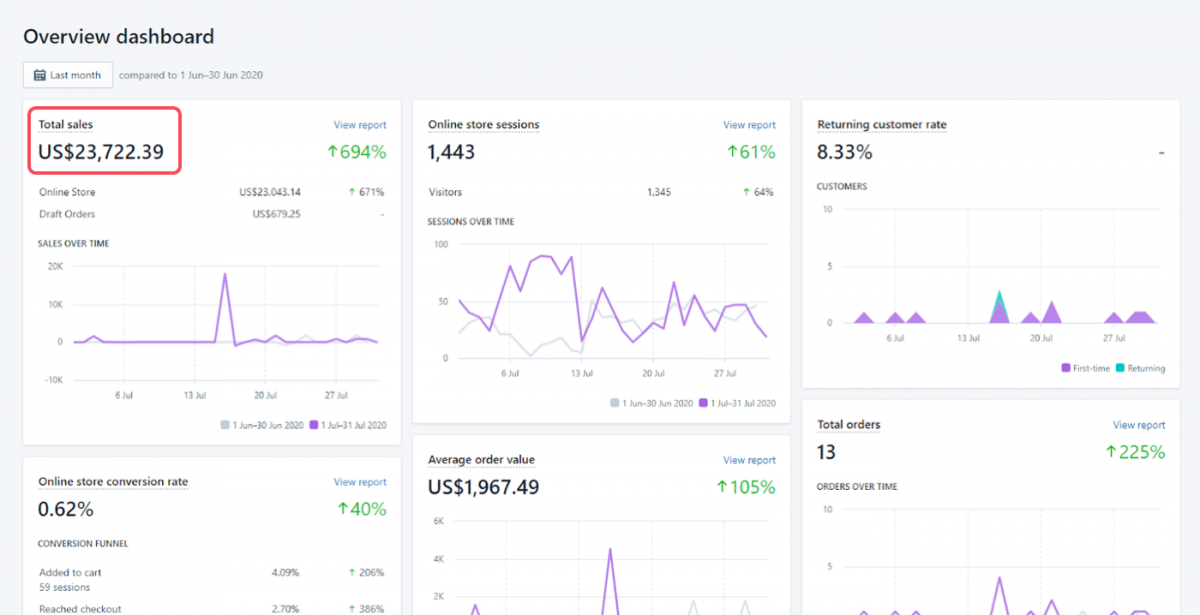
As you can see, apart from 10x sales, with Tidio chatbots, Alex has also increased:
- Returning customer rate
- Average order value
- Average conversion rate
- Number of orders
- Online store sessions
🚀 Read more: Chatbot for Business – How They Work & What They Do
August 2020 (22 days in)
Alex has also shared with us his data from 22nd August to prove that his July’s success wasn’t a one-time thing.
More than $16,000 in sales in August after adding chatbots in June shows that the decision to use Tidio was a real booster for his business.
Mind you, August is known to be the most difficult month to make sales
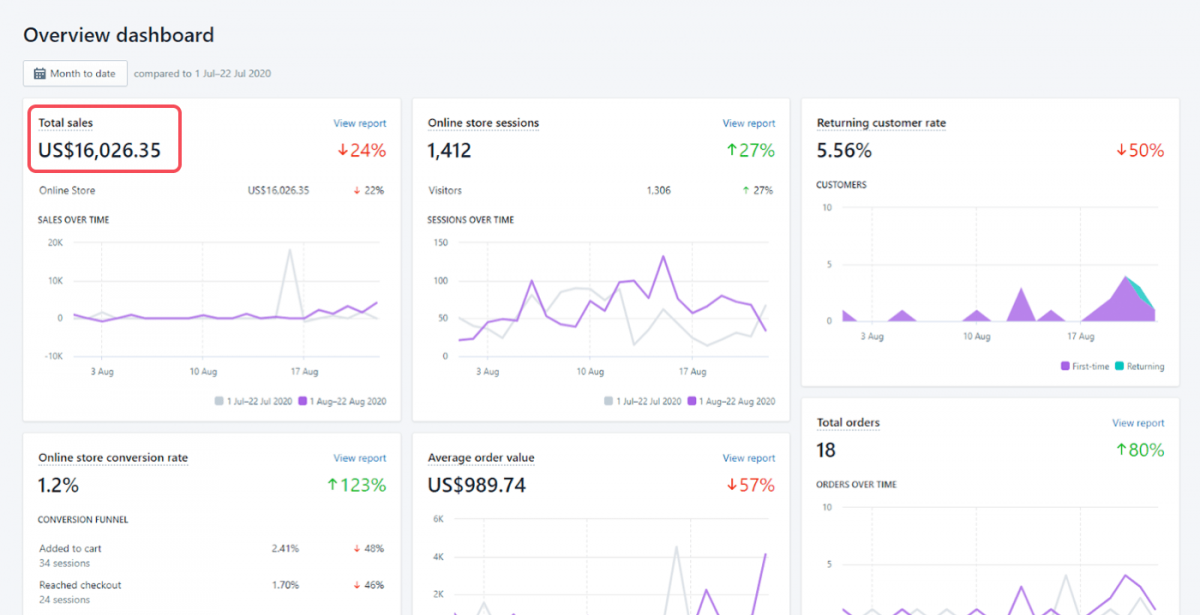
🚀 Read more: Chatbot Marketing 101: Fast, Easy Guide and Steps
Key takeaways – how to run a successful high end products business
Here are 7 main takeaways from the HB case:
- Quick responses and 24/7 availability using chatbots/live chat build trust needed to close more sales.
- Using chatbots saves your time and money, and can improve customer experience.
- With high-ticket items you just need a few good sales.
- Good products and marketing isn’t enough—customers need to be able to talk to you and get answers right away.
- Tools are only as powerful as the person using them—get experience with sales and marketing.
- Build custom chatbots for different pages.
- Average order value goes up with personalization—add live chat and chatbots to talk to your potential customers about their needs.
Chatbot tutorial—replicate HB success
Many chatbot users don’t take full advantage of their bots. By limiting themselves to just one, they miss many opportunities to engage visitors.
Alex uses several chatbots and makes them complementary. His secret is very simple – let each chatbot start in the right place at the right time.
Today, let’s focus on triggers based on actions taken by visitors. By setting up some additional rules and conditions, we can build a chatbot that pops up exactly where we want it.
For example, Alex has:
- a chatbot that welcomes new visitors that uses the First visit on site trigger,
- a bot that books calls on the product pages that uses the Visitor opens a specific page trigger,
- and another chatbot that offers discounts to returning visitors that uses the Visitor returns to the site trigger.
As you can see, each of them has a dedicated trigger. In the Tidio chatbot editor, there are many triggers to choose from.
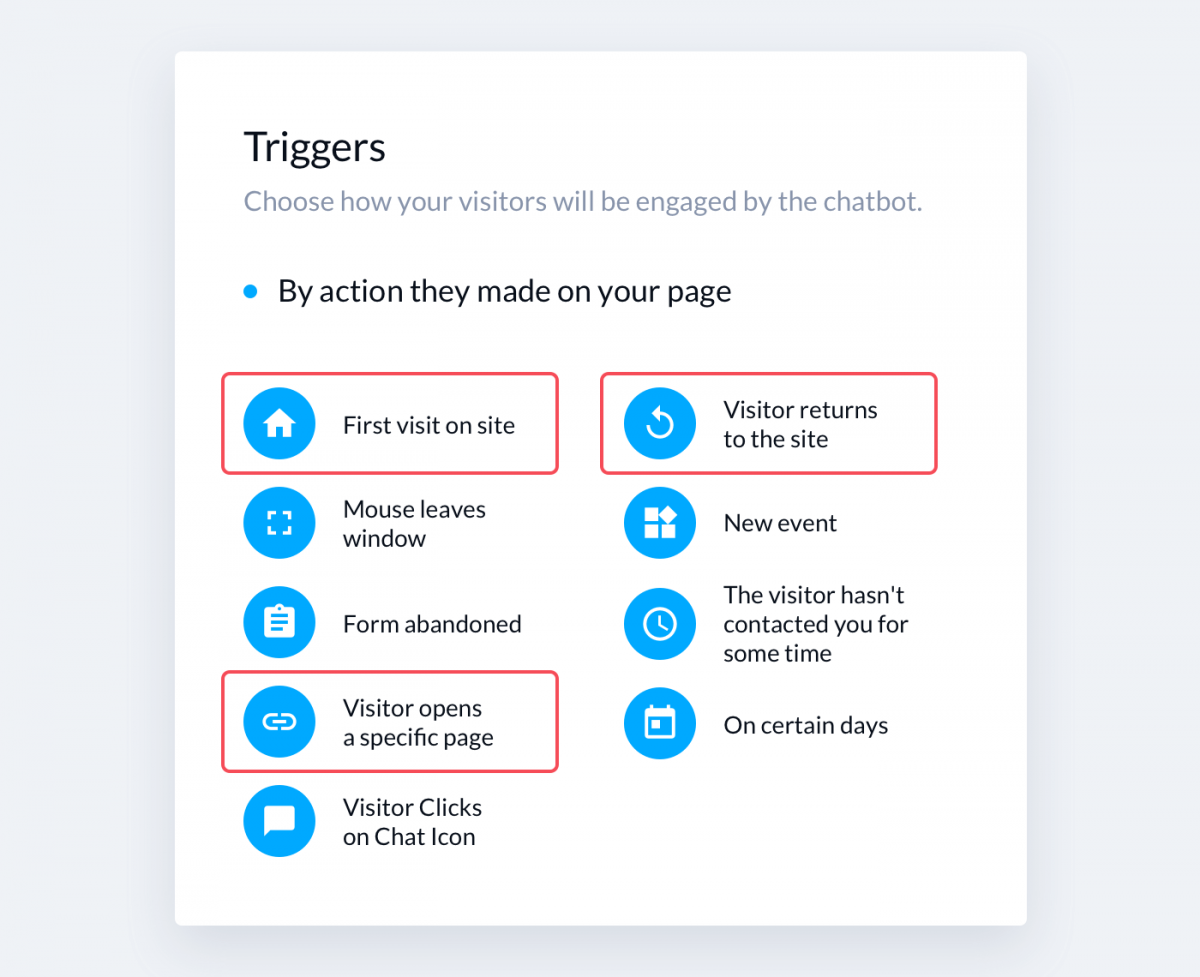
It seems pretty straightforward but the devil is in the detail.
For instance, have you ever wondered what would happen if someone visited the product page and it was the first visit as well? Which chatbot would take precedence?
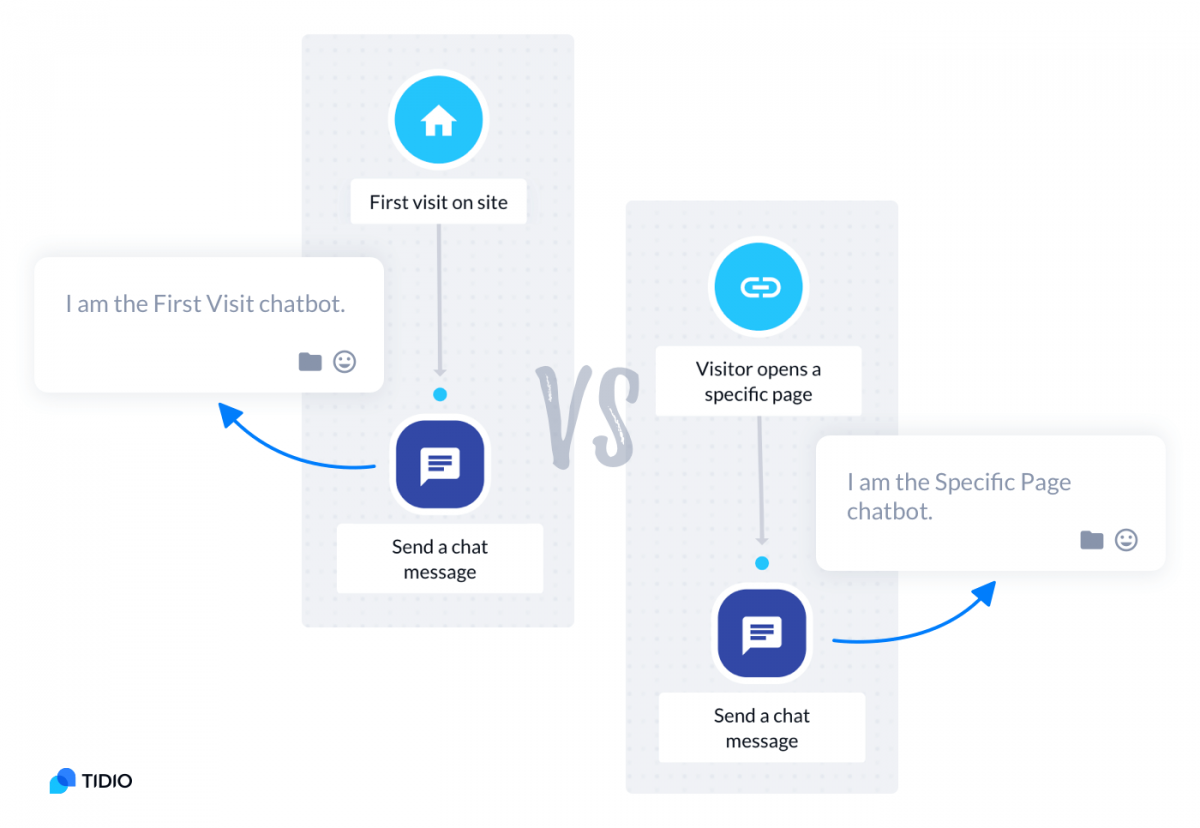
As you can see, both chatbots and their respective messages can be triggered at the same time (if both of them are active).
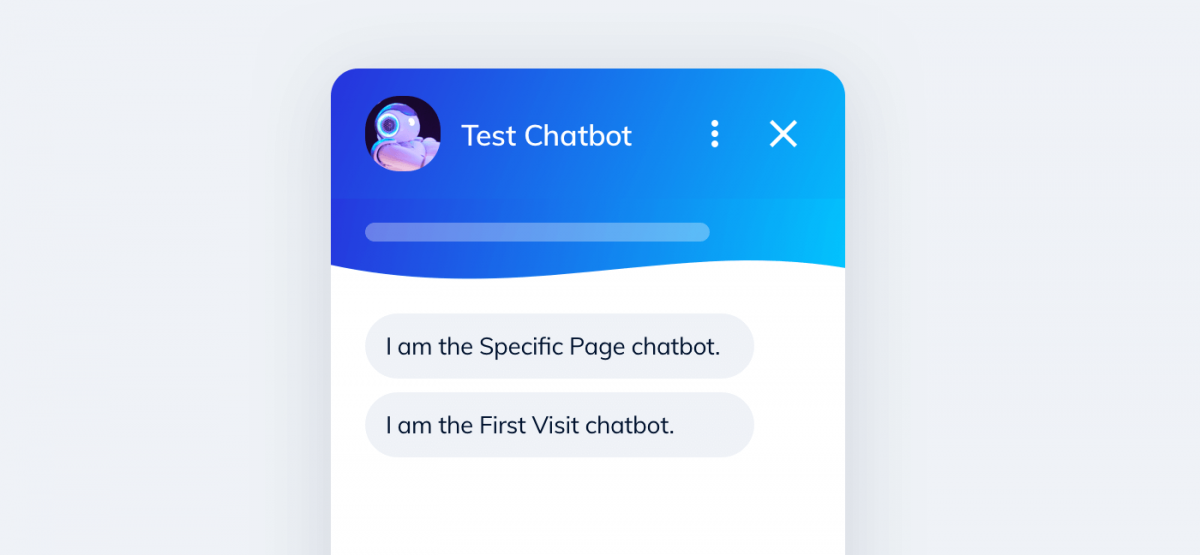
If we want your chatbot to appear only on your homepage, set up an extra condition. Go to the Conditions tab and put a Current URL node between the initial trigger and the message.
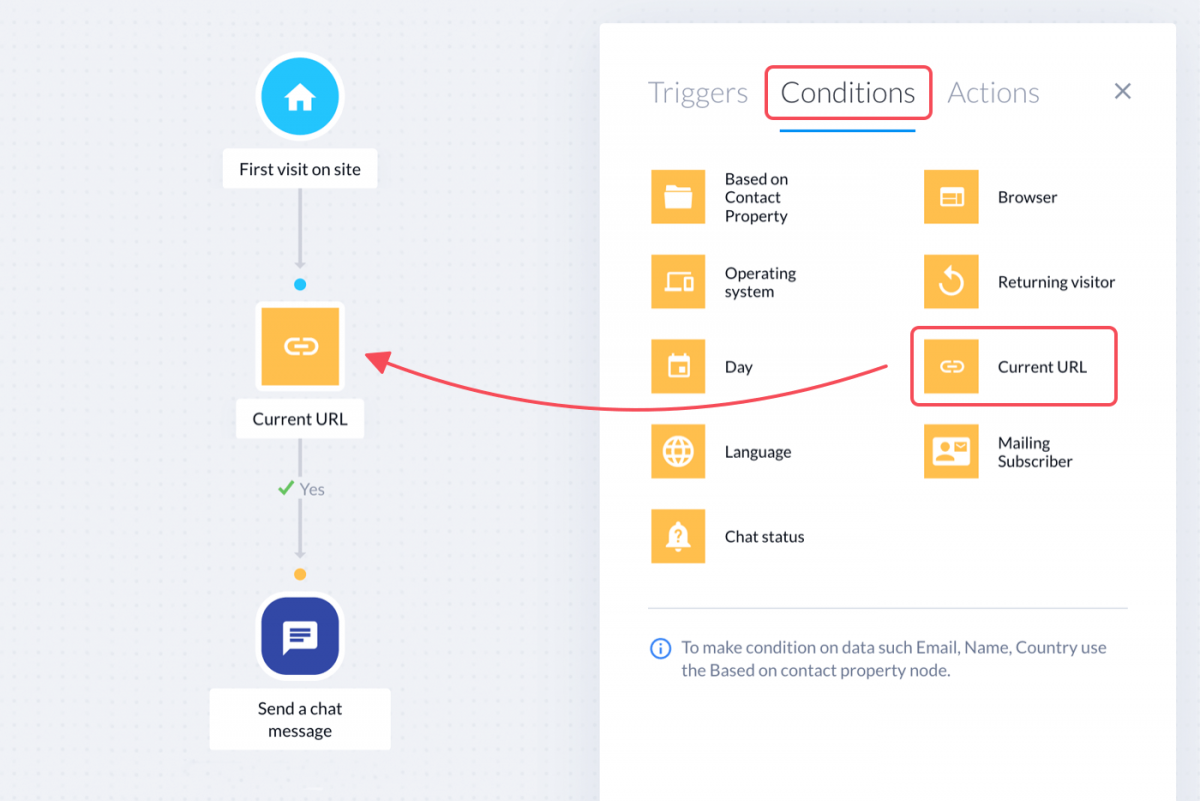
We can decide if we want the URL to exactly match the URL of a specific page or just contain a part of the address.
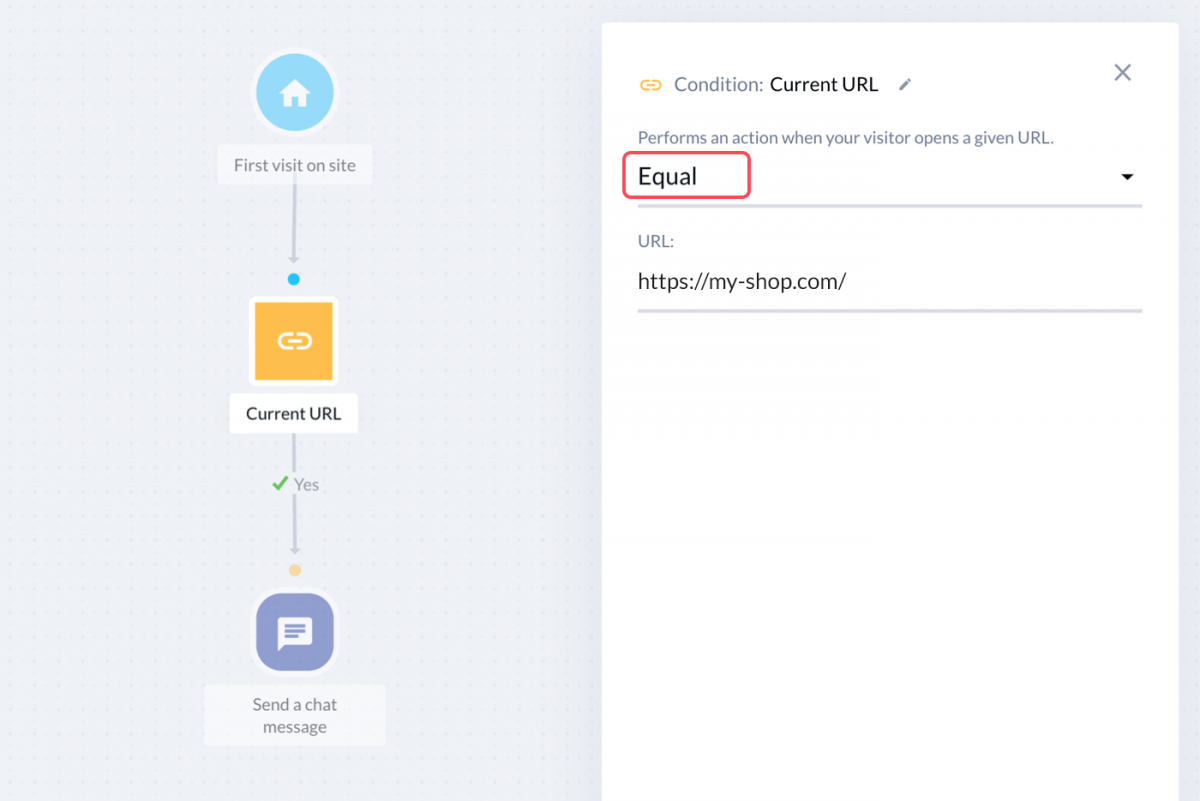
The second option is useful when we want to trigger one type of chatbot on similar pages of the same category. This is how Alex set up his chatbot for the product pages.
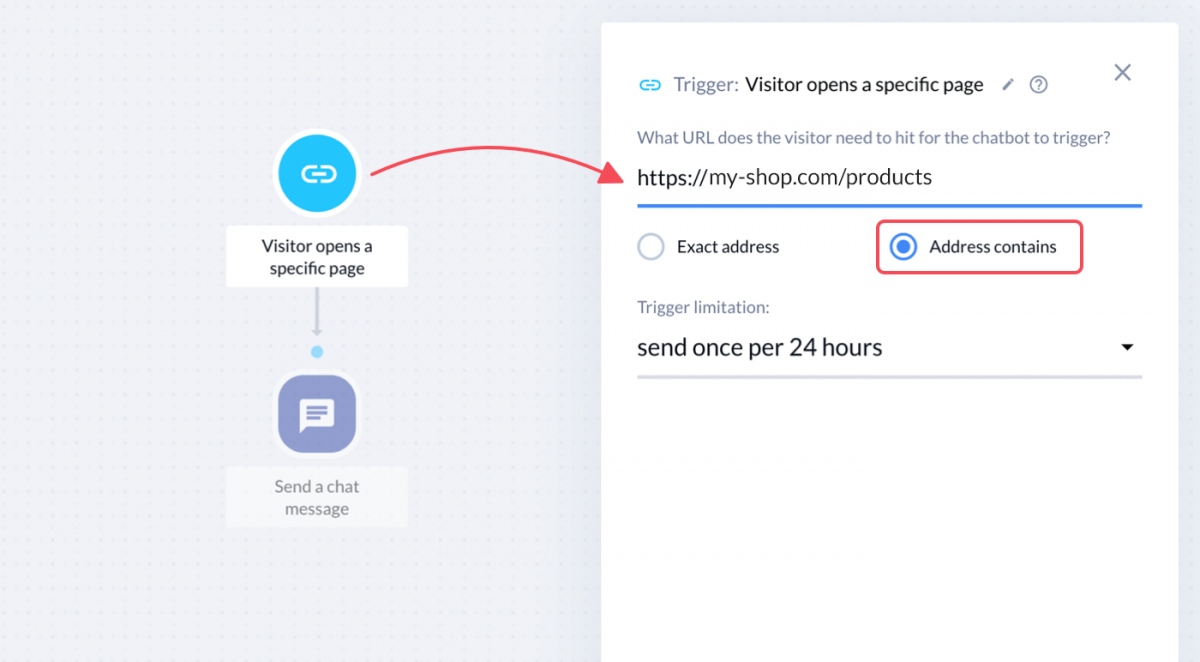
Understanding how to set up multiple chatbots with different triggers is an important skill. It is the first step to creating a great user experience and increasing sales with chatbots.
Do you want to hear the good news? You can trigger as many chatbots as you want for the same visitor. It only makes sense to have more than one. Explore our free chatbot templates to find some ideas.
Good luck!
